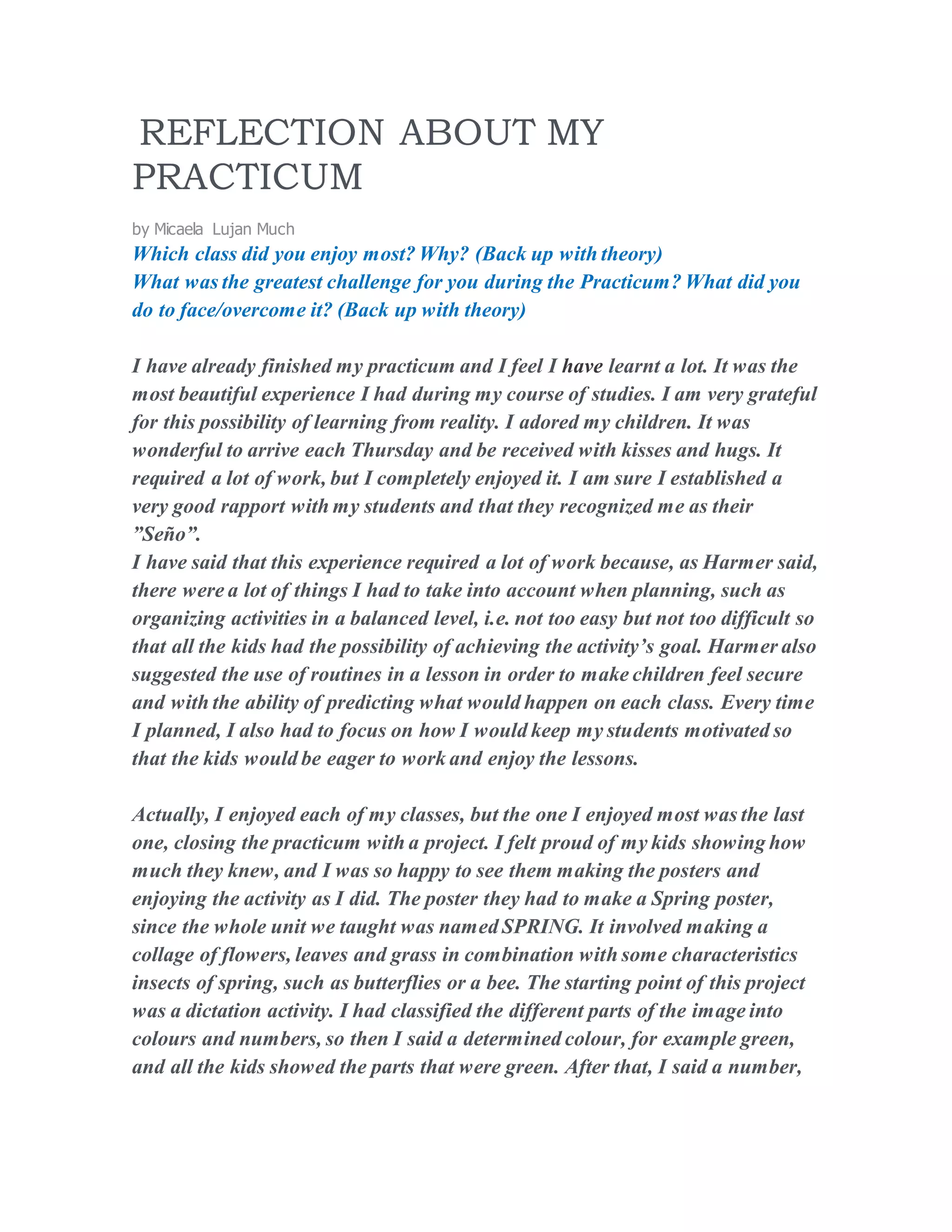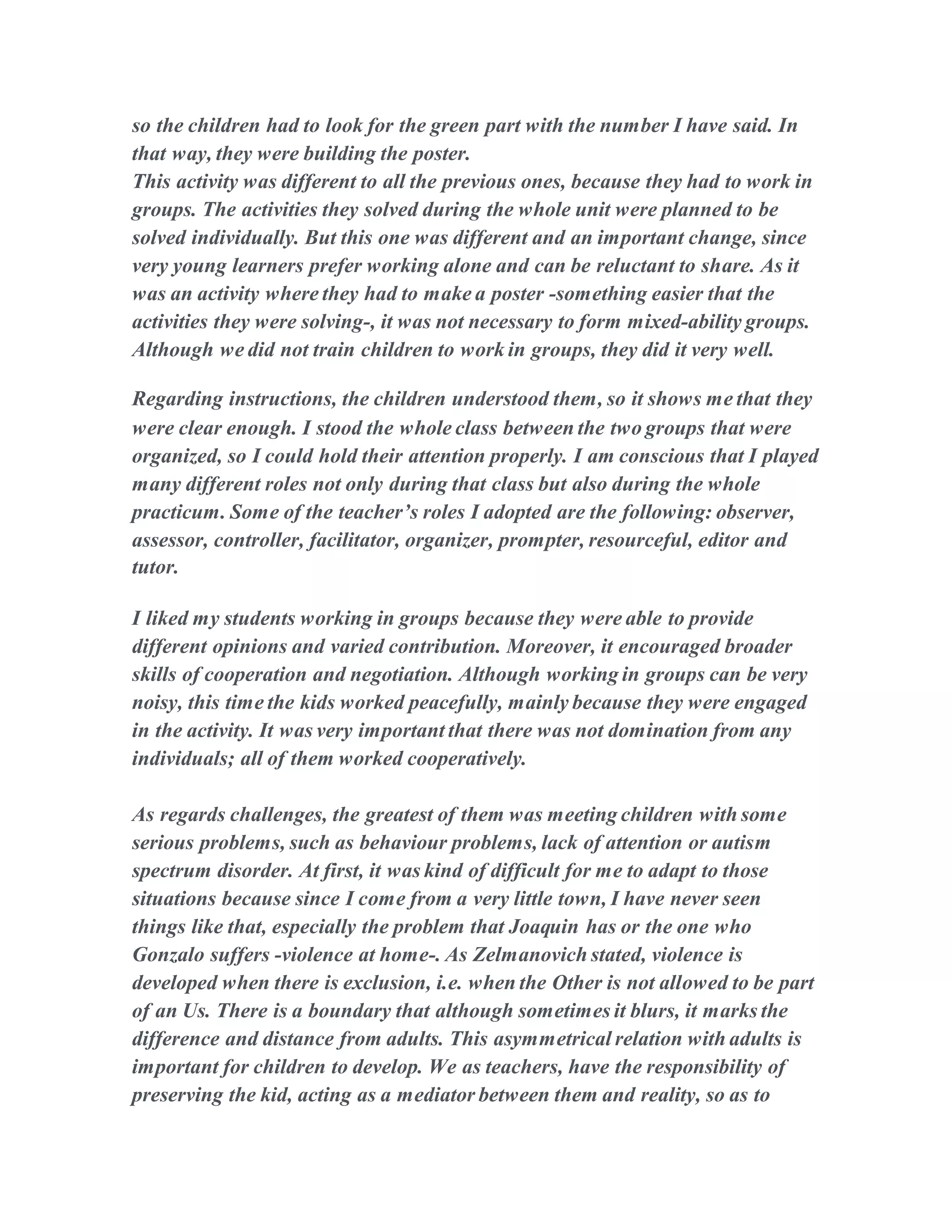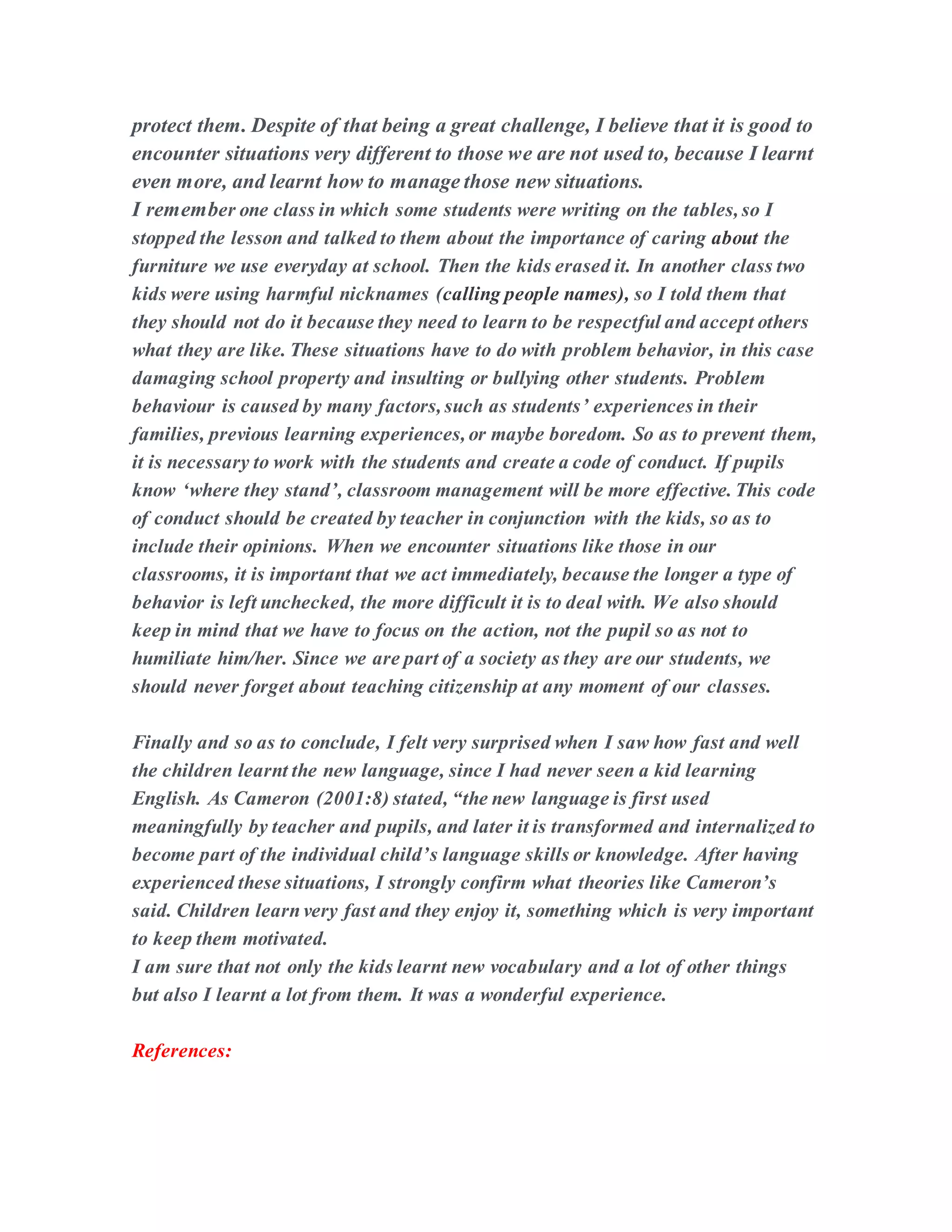The document is a reflection by a student on their practicum experience teaching English to young learners. The greatest challenge was adapting to students with behavioral issues like autism, but the student learned from encountering different situations. The class most enjoyed was a final project where students worked in groups to make posters, applying what they learned. While group work was new, the students collaborated well. Overall, the practicum was a wonderful learning experience that confirmed theories about how quickly and enjoyably children can learn a new language.



